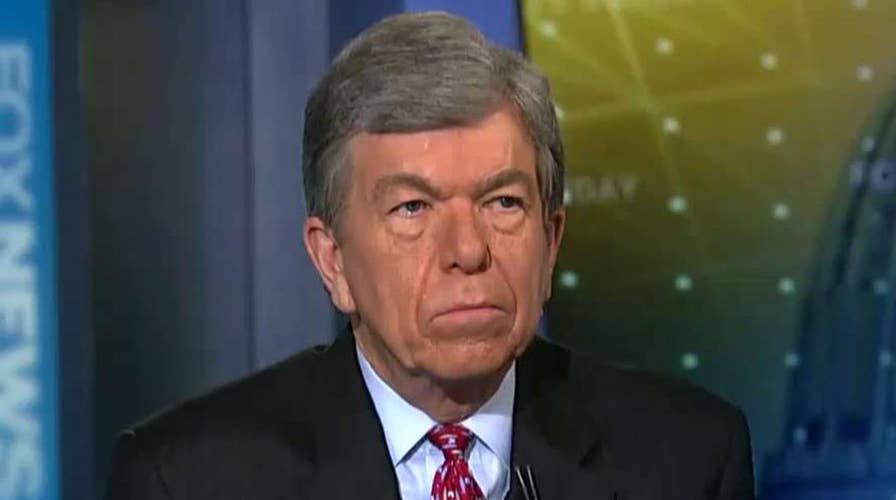Sen. Roy Blunt on London attack: We must be vigilant
Senate Intelligence Committee member weighs in on 'Fox News Sunday'
Missouri GOP Sen. Roy Blunt said Sunday that he wants fired FBI Director James Comey to testify later this week before Congress on the Russia investigations to help “bring this to a conclusion."
Blunt is a member of Senate Intelligence committee that on Thursday is holding the hearing on the matter that is expected to include questions about whether President Trump pressured Comey in the FBI’s ongoing Russia investigation.
Two administration officials, speaking on condition of anonymity, have said Trump is leaning against invoking executive privilege to try to block Comey from testifying about their private conversations.
Comey reportedly is expected to testify that Trump, in one of the conversations, asked the director to back off investigating ex-National Security Adviser Michael Flynn, fired for not disclosing talks with a Russian ambassador.
"Sooner than later, let's find out what happened and bring this to a conclusion,” Blunt told “Fox News Sunday.” “At some point, we'll hear the president's side. But I frankly think we need to hear Mr. Comey's side and find out what other questions we need to ask."
Blunt supported Trump’s 2016 presidential campaign, amid his own difficult re-election bid in swing-state Missouri. And he helped lead Trump’s inaugural events on Capitol Hill.
Republicans, at the start of the investigations into whether Russia meddled in the White House race, then into whether Trump’s campaign was involved, largely seemed reluctant to expand efforts, opposing Attorney General Jeff Sessions recusing himself and the appointment of a special prosecutor.
However, roughly four months later the FBI and two congressional probes have slowed Trump and congressional Republicans’ legislative agenda and sparked calls for a conclusion.
Virginia Sen. Mark Warner, the top Democrat on the Senate Intelligence committee, said Sunday that investigators have yet to “see a smoking gun.”
“But there’s a lot of smoke,” he told CNN’s “State of the Union.”
He also said Trump would likely be on “shaky legal ground” if he tried to keep Comey from testifying, particularly because Trump fired him and allegedly called him a “nutjob” in front of Russian guests.
Warner also said the idea that a president would ask the FBI to back off an investigation in which he could be a target is “unthinkable.”
Trump could invoke executive privilege by arguing that discussions with Comey pertained to national security and that he had an expectation of privacy in getting candid advice from top aides.
But legal experts say the president likely undermined those arguments because he publicly discussed the conversations in tweets and interviews.
Maine Sen. Susan Collins, another Republican on the committee, told CBS’ “Face the Nation” that she had several questions for Comey, including whether he indeed told Trump that he was not the subject of an investigation, as the president has said.
"Does Mr. Comey agree that that is what was said? Why would he tell the president that?" Collins asked.
The Associated Press contributed to this report.





